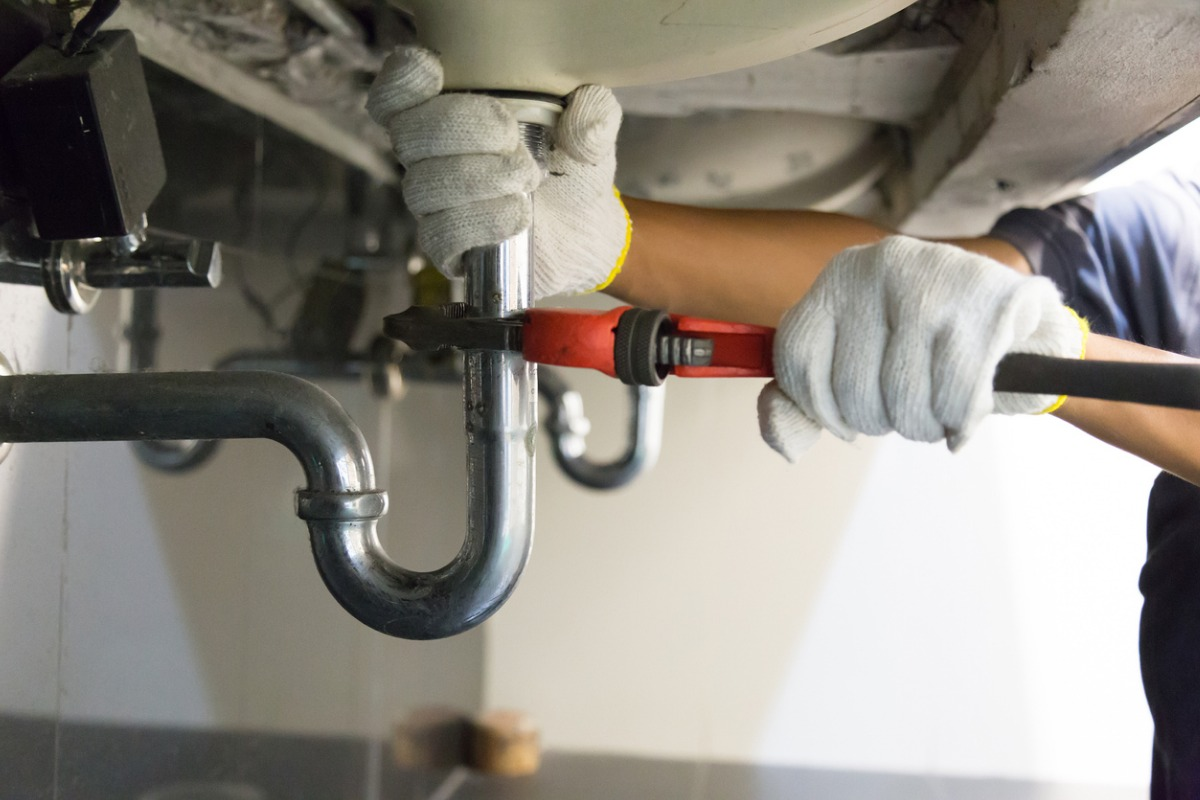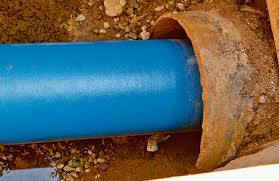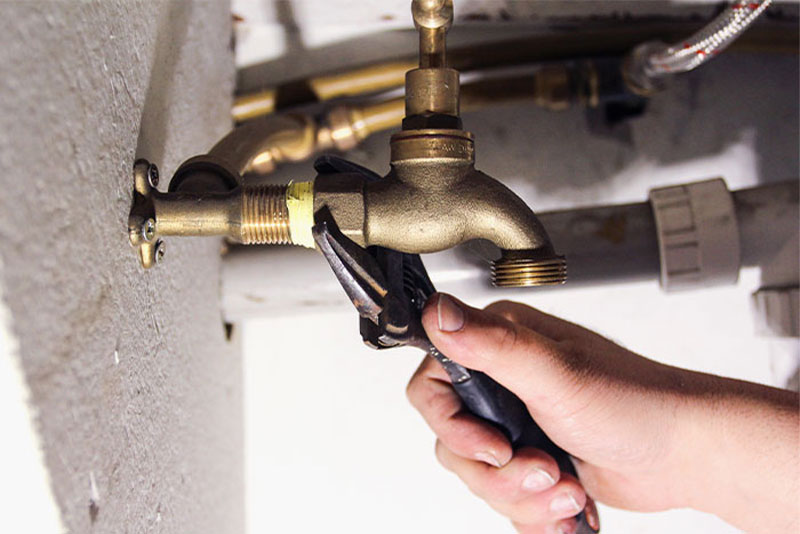Troubleshooting Dishwasher Drainage Issues
Dishwashers have become essential in modern kitchens, offering convenience and efficiency in our daily lives. However, encountering drainage issues with your dishwasher can be frustrating and disruptive. A malfunctioning dishwasher not only hampers your ability to clean dishes efficiently but can also lead to water accumulation and potential damage. Understanding the common causes and solutions for dishwasher drainage problems is key to maintaining a smoothly running appliance.
Let's explore the various factors that can contribute to dishwasher drainage issues and provide practical tips to address them effectively. Let's delve into the possible culprits behind poor drainage, from clogged filters and drain hose obstructions to faulty pumps and improper installations. It's important to consider professional assistance from Point Cook plumbers or experienced technicians when troubleshooting complex dishwasher problems.
Following the guidelines and suggestions outlined here, you can gain insights into resolving dishwasher drainage issues, ensuring a clean and hassle-free dishwashing experience. If you still face dishwasher drainage issues, consider contacting a reputable plumber near you for reliable solutions. Come, let's dive into dishwasher maintenance and troubleshooting to restore optimal functionality to your kitchen's workhorse.
Reasons For Malfunction
There are umpteen reasons why a dishwasher doesn't drain properly. Below here are some of the common causes –
Clogged filter or drain: The dishwasher has a filter to catch food particles and debris, preventing them from clogging the drain. Over time, the filter can become blocked, leading to poor drainage. Cleaning or replacing the filter can help resolve the issue.
Blocked drain hose: The drain hose that connects the dishwasher to the sink or garbage disposal can become clogged or kinked, preventing proper drainage. Inspect the hose for any obstructions or damage, and clear or replace it if necessary.
Garbage disposal clog: If your dishwasher is connected to a garbage disposal unit, a clog in the disposal can affect dishwasher drainage. Run the garbage disposal to check if it works correctly or clear any blockages if necessary.
Air gap obstruction: Some dishwashers have an air gap, a small device installed on the sink or countertop. Its purpose is to prevent backflow from the drain into the dishwasher. If the air gap becomes blocked or obstructed, it can cause drainage issues. Cleaning or unclogging the air gap may solve the problem.
Pump or motor malfunction: The dishwasher's pump or motor drains the water. If either of these components is faulty or worn out, it can lead to poor drainage. In such cases, a professional plumber from Point Cook might suggest a replacement.
Blocked or frozen drain line: The drain line, which carries water from the dishwasher to the plumbing system, can become blocked by debris or frozen in colder climates. Inspect the drain line for clogs or ice buildup and clear them if necessary.
Faulty drain pump: The dishwasher's drain pump pumps out the water from the dishwasher. If the pump is faulty or damaged, it may not function properly, resulting in poor drainage. An expert can diagnose and replace the pump if needed.
Malfunctioning check valve: The check valve of the dishwasher prevents water from flowing back into the dishwasher after draining. If the check valve is stuck or not functioning correctly, it can impede proper drainage. The valve may need cleaning or replacement, in assistance with a professional.
Improper installation: If the dishwasher is not installed correctly, it can lead to drainage issues. For example, if the drain hose is not installed at the correct height or the dishwasher is not properly aligned with the drain system, it can hinder drainage. Double-check the installation instructions or consult a professional plumber from Point Cook to ensure proper setup.
Overloaded dishwasher: Overloading the dishwasher with too many dishes or oversized items can obstruct the water flow and impede drainage. Be sure to load the dishwasher according to the manufacturer's guidelines and avoid overcrowding.
It's important to note that troubleshooting and fixing dishwasher issues can vary depending on the make and model. If you're unsure or unable to identify the problem, it's recommended to consult the manufacturer's manual or search for a plumber near me for assistance.
Troubleshooting the Malfunction
Below are some tips to help ensure your dishwasher functions properly –
Pre-rinse dishes selectively: Most modern dishwashers are designed to handle moderately dirty dishes, so there's no need to pre-rinse everything. Scrape off excess food particles, but avoid fully rinsing dishes unless they have dried-on or stubborn stains. Excessive pre-rinsing can interfere with the dishwasher's ability to clean effectively.
Load dishes properly: Proper loading is crucial for optimal cleaning and drainage. Follow these guidelines –
Place larger items like plates, pans, and bowls at the bottom rack, facing inward, for better water circulation.
Position glasses, cups, and smaller items on the top rack upside down to allow water to reach all surfaces.
Avoid overcrowding the dishwasher, as it can obstruct water spray and hinder proper cleaning and drainage.
Use the appropriate dishwasher detergent: Choose a high-quality dishwasher specifically designed for your dishwasher. Follow the manufacturer's instructions regarding the correct amount for optimal cleaning and prevent excessive suds that can lead to poor drainage.
Check water temperature: Ensure your dishwasher is connected to a hot water supply. Hot water is more effective in removing food particles and grease. Set your water heater to around 120°F (49°C) to provide the dishwasher with the ideal water temperature.
Regularly clean the dishwasher: To maintain optimal performance, clean the dishwasher regularly by following these steps –
Read the manufacturer's instructions carefully before removing and cleaning the filter. A clogged filter can impede drainage and affect cleaning efficiency.
Wipe down the dishwasher's interior, including the spray arms, with a damp cloth to remove any debris or residue.
Run an empty dishwasher cycle with a dishwasher cleaner or a cup of vinegar placed in the top rack to remove any built-up grease, mineral deposits, or odors.
Check and clean spray arms: Inspect the spray arms for clogs or debris. Remove and rinse them under running water to remove any obstructions if necessary. Ensure that the spray arm nozzles are clear and free from blockages.
Maintain the drain area: Regularly check the drain area at the bottom of the dishwasher for any debris or food particles. Remove any visible blockages to prevent drainage problems.
Keep air gap and garbage disposal clear: If your dishwasher is connected to an air gap or garbage disposal, ensure they are not clogged or obstructed. Clean the air gap and run the garbage disposal regularly to maintain proper drainage.
Following these tips should help ensure your dishwasher functions properly and provides clean, well-drained dishes after every cycle. When it comes to resolving dishwasher drainage problems, trusting a plumber from Point Cook ensures that you have access to the local plumbing systems. Don't let dishwasher troubles disrupt your routine; reach out to a reliable plumber for efficient and reliable assistance.
The Last Help
When addressing persistent dishwasher drainage issues, the expertise and services of a reputable plumbing company like Your Plumbing Company can make all the difference.
Our knowledge and experience in dealing with a wide range of plumbing problems, including those related to dishwashers, can ensure an accurate diagnosis and effective solutions.
Our trustworthy plumbers can provide prompt assistance tailored to your specific needs. Don't hesitate to seek their help to avoid further inconvenience and potential damage to your dishwasher. Remember, investing in timely professional assistance from a reliable plumbing company can save you time, effort, and the frustration of dealing with ongoing drainage issues.




Comments
Post a Comment